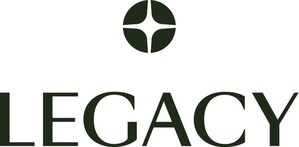Lung Cancer Screening Holds Significant Promise in Saving Millions of Lives
Statement from Cheryl G. Healton, DrPH, President and Chief Executive Officer, Legacy
WASHINGTON, Nov. 4, 2010 /PRNewswire-USNewswire/ -- In what is a watershed moment in the effort to save lives from the nation's number one cancer killer, groundbreaking news from the National Cancer Institute (NCI) today confirms what many in the public health community have long held out hope for - that low dose lung cancer screening will revolutionize the battle to detect tobacco-related lung cancers early enough to save countless lives.
(Logo: http://photos.prnewswire.com/prnh/20101101/DC86294LOGO)
(Logo: http://www.newscom.com/cgi-bin/prnh/20101101/DC86294LOGO)
The National Lung Cancer Screening Trial (NLST) has been halted because for high risk, heavy smokers, ages 55-74, low dose helical computed tomography (CT) scans have clearly demonstrated a statistically significant reduction in lung cancer mortalities.
Legacy first came out in support of the promise of this technology in 2004, before most in public health were willing to do so. Legacy has long funded the work of world-renowned and courageous radiologist, Dr. Claudia Henschke, a champion of CT scan technology, even when her work was considered controversial. Legacy is funding an ongoing analysis of the pressing question of whether CT scans for lung cancer will encourage smokers to quit or make them delay cessation even longer.
"We have been confident for many years that science would eventually find better ways to detect and treat lung cancers," said Cheryl G. Healton, DrPH, president and CEO of Legacy. "A growing body of evidence both in and outside the United States has been mounting for years that lung cancer screening saves lives. These findings suggest that CT screening for lung cancer should be incorporated into evidence-based practice and reimbursed in the same manner as mammography screening. In addition, costs for infrastructure and screening may be expensive and could be born by a tobacco product user fee given that tobacco is the leading cause of lung cancer. Also, smoking cessation counseling and referral ought to be a routine part of the screening to capitalize on this teachable moment and encourage smoking cessation. Public health leaders nationally are jubilant at this news and feel all our hopes for this technology have finally been realized," she said.
Legacy is dedicated to building a world where young people reject tobacco and anyone can quit. Located in Washington, D.C., the national public health organization helps American live longer, healthier lives. Legacy develops programs that address the health effects of tobacco use, especially among vulnerable populations disproportionately affected by the toll of tobacco, through grants, technical assistance and training, partnerships, youth activism, and counter-marketing and grassroots marketing campaigns. The foundation's programs include truth®, a national youth smoking prevention campaign that has been cited as having contributed to significant declines in youth smoking; EX®, an innovative public health program designed to speak to smokers in their own language and change the way they approach quitting; and research initiatives exploring the causes, consequences and approaches to reducing tobacco use. The American Legacy Foundation was created as a result of the November 1998 Master Settlement Agreement (MSA) reached between attorneys general from 46 states, five U.S. territories and the tobacco industry. Visit http://www.legacyforhealth.org/.
SOURCE Legacy
WANT YOUR COMPANY'S NEWS FEATURED ON PRNEWSWIRE.COM?
Newsrooms &
Influencers
Digital Media
Outlets
Journalists
Opted In





Share this article